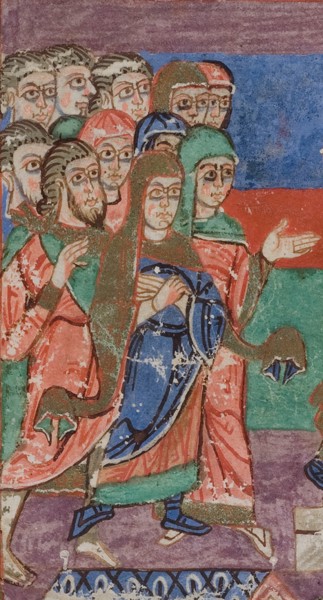Communitas
Building Community and Shaping Narratives of Self in Medieval and Early Modern Religious Life

Method of peer review
double-blind undertaken by a specialist member of the Board or an external specialist
Keywords
Medieval history, religious community life, Early Modern history, community building, narratives of self, bottom-up perspectives, 500-1700CE, Latin West
Accepted Language(s):
English, French
Accepts Contributions in Open Access
Communitas explores the way in which Christian men and women of the medieval and early modern eras (500-1750 CE) built community and crafted narratives of collective self. This series is a home for both monographs and edited collections that seek to understand how such groups navigated their worlds. In particular this means how, in building and maintaining their community, they managed the tension between normative expectations and more grounded realities, whether social, socio-economic, cultural, gendered, or any other. It seeks to answer fundamental questions about how bottom-up dynamics were instrumental in shaping the forms and experiences of religious life in communal settings, how these dynamics changed over time, and how community members tried to influence them. It also aims to understand how such groups sought to establish themselves as distinct from other cohorts in society, including their religious peers, what social, cultural, and other strategies they relied on to communicate that distinctness, and what made some of these strategies work and others not. Communitas therefore offers a counterpoint to the top-down perspective and normative focus of older scholarship.
The series invites submissions on any form of Christian religious community life from any region of the Latin West. This includes (but is not exclusive to) groups of vowed monastics, secular or regular clerics or canonesses, anchorites and hermits living in a community setting, household ascetics, and lay confraternities. More broadly speaking the series also welcomes studies on the origins and development of religious movements, regardless of whether contemporary authorities considered them orthodox or socially acceptable.
Thematically Communitas casts its net wide, covering a broad range of methodological and conceptual approaches. This includes research on the formation of religious communities and their subsequent pursuit of religious ideals in light of normative expectations and societal challenges. Another focus is how such expectations and challenges were addressed in literary production, the members’ physical appearance, a community’s use of space, and in art, music, and (liturgical) performance. And a further key theme is how groups shaped narratives of communal self in order to give their members a sense of shared identity and purpose.
By adopting a diachronically and geographically comparative perspective, this series seeks to cast new light on the place of religion as a communal experience in the Latin West. Submissions written for an international audience in English or French will be subject to double blind peer review and assessed by an international editorial board.
-
EDITORIAL BOARD
The series warmly welcomes volume proposals for both monographs and thematically coherent essay collections, and actively encourages early career researchers to submit a proposal.
The board commits itself to offering future authors personal guidance and support to develop and to give shape to their project.Nicolangelo d’Acunto, Università Cattolica del Sacro Cuore, Milano/Brescia
Tracy Collins, National Monuments Service - Ireland
Christoph Dartmann, Universität Hamburg
Julie Hotchin, Australian National University
Emilia Jamroziak, University of Leeds
Rutger Kramer, University of Utrecht
Elisabeth Lusset, CNRS
Martha Newman, University of Texas at Austin
-
AUTHOR INFORMATION
Main language: English, French
Double-blind undertaken by a specialist member of the Board or an external specialistAll volumes in this series are evaluated by an Editorial Board, strictly on academic grounds, based on reports prepared by referees who have been commissioned by virtue of their specialism in the appropriate field. The Board ensures that the screening is done independently and without conflicts of interest. The definitive texts supplied by authors are also subject to review by the Board before being approved for publication
Author guidelines in English can be found at: https://www.brepols.net/permalink/stylesheet-author ;
Directives d'auteurs à appliquer : https://www.brepols.net/permalink/directives-auteurs-frSubmissions should be sent to:
Prof. Dr. Steven Vanderputten, steven.vanderputten@ugent.be